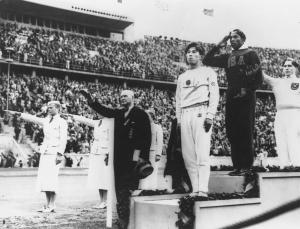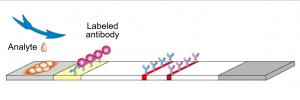|
The book The Big Short is a novel based on a true story about the subprime mortgage crisis that occurred between 2007 and 2010 in the U.S. It was written by Michael Lewis, a bestselling author also known for his other books Liar’s Poker, and Moneyball.
Why don’t we take a close look at the book and learn about what caused this crisis in 2007?
What was the subprime mortgage crisis and what caused it?
Before I begin, you need to know what ‘long’ and ‘short’ means in financial markets. There’s an aboriginal division between two-character types when explaining the financial markets: the bear and the bull market. Easily said, the bull market is when investors usually assume the stock or bond they buy will go up in prices good for taking the ‘long’ position. Conversely, the bear market means the investor buys a security in anticipation of it going down and takes the ‘short’ position.
In the bond market, the CDS (Credit Default Swap) is the same as the short position in the stock market. What’s different is that the investor who holds the CDS has to pay an annual premium on this like an insurance policy. The healthier the bond continues to be, the longer the term the investor has to pay the premium. Of course, when the underlying bond fails, the investor gets the payoff.
The characters Lewis presents in his book are those who succeeded in making a large sum of money by buying CDOs (Collateralized Debt Obligations), which are clusters of different subprime mortgages. Yet those CDOs were not as financially healthy as they looked. To understand what a CDO is, we need to know what constitute them and who rates their credit. Wall Street banks sold mortgages to their customers. A mortgage is a bank loan secured by the collateral of real estate property that the borrower is obliged to pay back over the long term. When the housing market continued to thrive, people thought the rising house prices would guarantee they could easily pay off their principle and interest. This idea appears throughout the movie The Big Short several times.
“Well, they’re mortgages! Who doesn’t pay their mortgages?”
These house loans are then bundled together to form a new type of investment similar to bonds, from the banks that issued them called a MBS (Mortgage-Backed Security). To help you better understand, I’ll use fried chicken as an example. In Korea, starting a fried chicken restaurant is safer than other categories of business since Koreans eat fried chicken very often. The MBS could be similar to a financial product comprising of famous chicken restaurant brands bundled together, such as Goobne, BBQ, and BHC, into one seemingly safe security that you could invest in. While everyone is happy, owning their house, or chicken bonds, thanks to ‘generous’ bank mortgages, the problem begins. The banks, blinded by the lure of lucre, made mortgage loans and even lent money to those who do not have the capability to repay, which drops the safety of the MBS. The author, Lewis even stated,
“In Bakersfield, California, a Mexican strawberry picker with an income of $14,000 and no English was lent every penny he needed to buy a house for $724,000.”
These indiscreetly issued subprime mortgages were credit laundered by rating agencies that were eager to collect fees for their service, such as Moody’s and S&P. These agencies ineptly rated triple-B bonds into triple-A, which have a higher degree of creditworthiness because their issuers are easily able to meet financial commitments. So, investors thought they were getting safe investments because of the high ratings, when they were really investing in unstable, undesirable mortgage loans to people who couldn’t pay the loan back.
When U.S. home prices declined after reaching their peak in 2006, the borrowers couldn’t refinance their loans. According to the IMF, by the time the subprime market imploded in 2008, the losses on U.S.-originated assets had amounted to a trillion dollars. There were concerns about the soundness of U.S. financial markets which led to stagnating economic growth in the U.S., Europe and even around the world. In the case of the U.S., house prices fell nearly 30% from their previous level, and U.S. stocks plummeted down to approximately 50% after the depression. The U.S. government bailed out the investment banks that caused the collapse: Goldman Sachs, Morgan Stanley, AIG, Citicorp, with billions of dollars from taxpayers. The U.S. Department of the Treasury bought up to $700 billion in toxic assets from companies, which could then replenish their balance sheets with safer assets.
Two People Who Earned Money from this Crisis
To begin with, there was Michael Burry, a physician and an investor who founded Scion Capital. He is known for being the first investor to foresee and profit from the subprime mortgage crisis. In the book, the author describes him as a passionate man with Asperger’s Syndrome, who read hundreds of subprime mortgage bond prospectus that were more than 100 pages in length (something that no one except the lawyers who wrote the prospectuses would do). After reading all those books and analyzing mortgage lending practices at that time, he predicted the housing market would collapse. He then began to persuade IB (investment banks) such as Goldman Sachs and Deutsche Bank to sell him Default Swaps against the housing market. No one believed his predictions, including his investors, but his analysis proved to be correct and he made lots of money as compensation for his patience.
Then there was Steve Eisman, an investor of a hedge fund called FrontPoint, who believed that the finance industry existed to rip people off. He also underwent an analysis on mortgages and decided to get in on the race by shorting the very industry he despised. Well, his wish to watch the decrepit industry collapse didn’t come true because the U.S. government bailed out the banks.
The book ends by saying, “It’s laissez-faire until you get in deep shit.” What we’ve learned through reading this page-turner are success stories of investors winning big against the subprime housing market. After reading this book, I asked myself, “If I had the insight that could see through the market, and be so sure of the market crash as they did, could I bet more than 100 million dollars on the short?” The answer is no; maybe only those with outstanding talents and guts may become a legendary investor. |
Song Hojae x
<저작권자 © 홍익대영자신문사, 무단 전재 및 재배포 금지>





